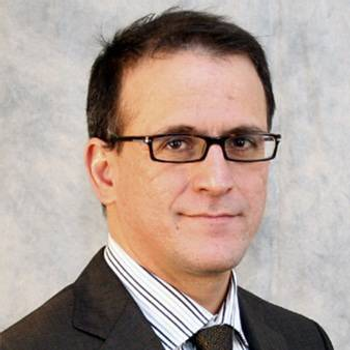Posterior Fossa Tumor Overview
Learn About Posterior Fossa Tumor
Posterior fossa tumors are growths that develop in the lower part of the skull, known as the posterior cranial fossa. This compact space contains essential structures, including the cerebellum, brainstem, and fourth ventricle, all of which play vital roles in movement coordination, balance, and basic life functions like breathing and heart rate. These tumors make up around half of all brain tumors in children and about 15–20% in adults. Because of the tight confines of the posterior fossa, even small tumors can lead to serious symptoms and life-threatening complications such as increased intracranial pressure (ICP) or hydrocephalus. This article explores the causes, symptoms, diagnosis, and treatment options for posterior fossa tumors while providing guidance on living with this complex condition.
A posterior fossa tumor is an abnormal growth located in the lower part of the skull, below the tentorium cerebelli. This area includes the cerebellum, brainstem, and fourth ventricle. Tumors in this region can be either primary (originating from brain tissue) or secondary (metastatic, spreading from another part of the body). Because the posterior fossa contains structures that regulate movement, coordination, and vital body functions, these tumors can have profound neurological effects.
Common locations include:
- Cerebellum (hemispheres and vermis)
- Brainstem (pons, medulla, midbrain)
- Fourth ventricle
- Cerebellopontine angle (CPA)
Classification
Pediatric tumors:
- Medulloblastoma (most common malignant tumor in children)
- Pilocytic astrocytoma (most common benign tumor)
- Ependymoma
- Brainstem glioma
- Atypical teratoid/rhabdoid tumor (AT/RT)
Adult tumors:
- Hemangioblastoma
- Metastases (from lung, breast, or melanoma)
- Cerebellar astrocytoma
- Ependymoma
- Meningioma
- Schwannoma (especially vestibular schwannoma)
Posterior fossa tumors are the most frequent brain tumors in children and a significant subset in adults.
Children: Approximately 50–60% of all pediatric brain tumors arise in the posterior fossa.
Adults: Represent 15–20% of all brain tumors.
Specific types occur in certain age groups:
- Medulloblastoma: Common in children aged 3–8 years
- Pilocytic astrocytoma: Often affects adolescents
- Ependymoma: More frequent in children under 5 years
- Hemangioblastoma: Seen in adults aged 30–50 years, sometimes linked to von Hippel-Lindau (VHL) disease
Gender distribution varies:
- Medulloblastomas: More common in males
- Meningiomas and schwannomas: More common in females
Most posterior fossa tumors occur spontaneously, but some are linked to inherited genetic conditions or environmental exposures.
Genetic and molecular factors:
- Medulloblastoma: Alterations in the SHH and WNT signaling pathways
- Hemangioblastoma: Mutations in the VHL gene
- Pilocytic astrocytoma: BRAF gene alterations
Associated syndromes:
- Von Hippel-Lindau disease (hemangioblastomas)
- Neurofibromatosis type 2 (vestibular schwannomas and meningiomas)
Other potential risk factors:
- Previous exposure to cranial radiation
- Family history of CNS tumors
The posterior fossa is a tight, non-expandable compartment, meaning any additional mass quickly disrupts the balance of intracranial pressure. Tumors in this area can compress the fourth ventricle or brainstem, causing obstructive hydrocephalus and brainstem dysfunction.
Main mechanisms include:
- Mass effect: Compression of surrounding brain tissue causing ataxia and cranial nerve deficits
- CSF flow obstruction: Tumors can block cerebrospinal fluid flow, leading to increased intracranial pressure
- Direct invasion: Malignant tumors such as medulloblastomas can infiltrate brain tissue or spread through CSF
- Genetic dysregulation: Mutations alter cell cycle control, allowing unchecked tumor growth
Because of the confined space of the posterior fossa, symptoms often develop from either raised intracranial pressure or direct damage to the cerebellum and brainstem.
Common symptoms include:
- Headache (especially in the morning)
- Nausea and vomiting
- Balance and coordination problems (ataxia)
- Double vision or eye movement problems
- Hearing loss or ringing in the ears
- Difficulty speaking or swallowing
- Facial weakness or numbness
In infants:
- Enlarged head circumference
- Bulging fontanelle
- Irritability and poor feeding
Tumor-specific signs:
- Medulloblastoma: Rapid onset of symptoms, truncal ataxia
- Pilocytic astrocytoma: Slow progression with isolated cerebellar symptoms
- CPA tumors (schwannoma, meningioma): Hearing loss and tinnitus before ataxia
Diagnosing a posterior fossa tumor requires imaging and, in many cases, tissue analysis.
Imaging studies:
- MRI with contrast: Gold standard; provides detail on size, location, and characteristics
- CT scan: Helpful in emergencies; identifies hydrocephalus or calcifications
Advanced imaging techniques:
- MR spectroscopy and diffusion imaging help differentiate tumor types
- Functional MRI assists in surgical planning
Laboratory and CSF tests:
- Tumor markers (AFP, beta-hCG) for germ cell tumors
- CSF cytology post-surgery may reveal spread of tumor cells
Several conditions can mimic posterior fossa tumors. These include:
- Infections: Cerebellitis or abscess
- Vascular lesions: Cavernous malformations
- Congenital anomalies: Chiari malformation
- Inflammatory diseases: Multiple sclerosis or acute demyelination
Treatment focuses on relieving pressure, removing as much of the tumor as possible, and preventing recurrence. Management varies by tumor type, age, and overall health.
1. Stabilization:
- Corticosteroids to reduce brain swelling
- Mannitol or hypertonic saline for intracranial pressure control
- External ventricular drainage if hydrocephalus is present
2. Surgery:
Surgical resection is often the first-line treatment. The goal is maximal safe removal while preserving brain function. Some benign tumors can be cured by complete excision.
3. CSF Diversion:
- Temporary drainage (EVD)
- Permanent shunt (VP shunt) for chronic hydrocephalus
4. Radiation and Chemotherapy:
- Medulloblastoma: Surgery followed by craniospinal irradiation and chemotherapy
- Ependymoma: Surgery plus local radiotherapy
- AT/RT: Multimodal therapy combining surgery, chemotherapy, and radiation
5. Targeted therapy:
Research is ongoing for therapies targeting molecular abnormalities, such as SHH or WNT pathways in medulloblastomas.
Complications can arise both from the tumor itself and from its treatment.
Tumor-related:
- Hydrocephalus
- Brainstem compression and herniation
- Cranial nerve palsies
Post-treatment:
- Cerebellar mutism (especially after medulloblastoma surgery)
- Balance and coordination issues
- Hearing loss
- Endocrine problems from radiation
Prognosis depends on tumor type, grade, and response to treatment.
Survival rates:
- Medulloblastoma: 70–80% five-year survival
- Pilocytic astrocytoma: Excellent prognosis after full resection
- Ependymoma: 50–70% survival
- Hemangioblastoma: Usually favorable if completely removed
Long-term outcomes are best when the tumor is detected early and treated promptly.
While most cases are not preventable, early detection and genetic counseling can help high-risk individuals.
Preventive strategies:
- Genetic testing for VHL or NF2 in affected families
- Regular MRI screening in known genetic syndromes
- Limiting radiation exposure in children
Recovering from and living with a posterior fossa tumor often involves long-term rehabilitation and emotional support.
Rehabilitation includes:
- Physical therapy to improve balance and coordination
- Speech therapy for communication difficulties
- Occupational therapy for daily activities
Emotional and social support:
- Psychological counseling for patients and families
- Support groups for long-term survivors
With comprehensive care, many individuals regain independence and lead fulfilling lives.
Posterior fossa tumors are complex brain tumors that can have serious effects due to their location in a critical area of the brain. Early recognition of symptoms, accurate diagnosis, and prompt surgical and medical management are key to improving outcomes. Advances in imaging, surgical techniques, and molecular-targeted treatments have improved survival and quality of life, especially in children. Ongoing research continues to refine treatment approaches and minimize long-term side effects, offering hope for even better outcomes in the future.
- Jallo GI, Freed D, Epstein FJ. Pediatric infratentorial tumors: diagnosis and management. Neurosurg Clin N Am. 1998;9(4):689-709.
- Northcott PA, Robinson GW, Kratz CP, et al. Medulloblastoma. Nat Rev Dis Primers. 2019;5(1):11.
- Merchant TE, Pollack IF, Loeffler JS. Brain tumors across the age spectrum: biology, therapy, and late effects. Semin Radiat Oncol. 2010;20(1):58-66.
- Packer RJ, Vezina G. Management of and prognosis with medulloblastoma: therapy at a crossroads. Arch Neurol. 2008;65(11):1419-1424.
- Louis DN, Perry A, Wesseling P, et al. The 2021 WHO classification of tumors of the central nervous system: a summary. Neuro Oncol. 2021;23(8):1231-1251.
Duke Cancer Center Brain Tumor Clinic
Allan Friedman is a Neurosurgery provider in Durham, North Carolina. Dr. Friedman is rated as a Distinguished provider by MediFind in the treatment of Posterior Fossa Tumor. His top areas of expertise are Glioma, Astrocytoma, Glioblastoma, Awake Craniotomy, and Laminectomy. Dr. Friedman is currently accepting new patients.
Carolinas Medical Center
Anthony Asher is a Neurosurgery provider in Charlotte, North Carolina. Dr. Asher is rated as a Distinguished provider by MediFind in the treatment of Posterior Fossa Tumor. His top areas of expertise are Radiation Induced Meningioma, Primitive Neuroectodermal Tumor (PNET), Posterior Fossa Tumor, Awake Craniotomy, and Gamma Knife Radiosurgery. Dr. Asher is currently accepting new patients.
Advocate Medical Group Neurosurgery
Juan Tejada is a Neurosurgery provider in Libertyville, Illinois. Dr. Tejada is rated as a Distinguished provider by MediFind in the treatment of Posterior Fossa Tumor. His top areas of expertise are Posterior Fossa Tumor, Primitive Neuroectodermal Tumor (PNET), Apoplexy, Awake Craniotomy, and Microdiscectomy.
Summary: This is a Phase 1 study of central nervous system (CNS) locoregional adoptive therapy with autologous CD4+ and CD8+ T cells lentivirally transduced to express a B7H3-specific chimeric antigen receptor (CAR) and EGFRt. CAR T cells are delivered via an indwelling catheter into the tumor resection cavity or ventricular system in children and young adults with diffuse intrinsic pontine glioma (DIPG), ...
Summary: This phase I/II trial evaluates the best dose, side effects and possible benefit of CBL0137 in treating patients with solid tumors, including central nervous system (CNS) tumors or lymphoma that has come back (relapsed) or does not respond to treatment (refractory). Drugs, such as CBL0137, block signals passed from one molecule to another inside a cell. Blocking these signals can affect many funct...

Keep Punching supports patients, healthcare providers, and researchers in their fight to prevent and eradicate brain cancer and minimize treatment-related side effects that may adversely impact function and comfort.


